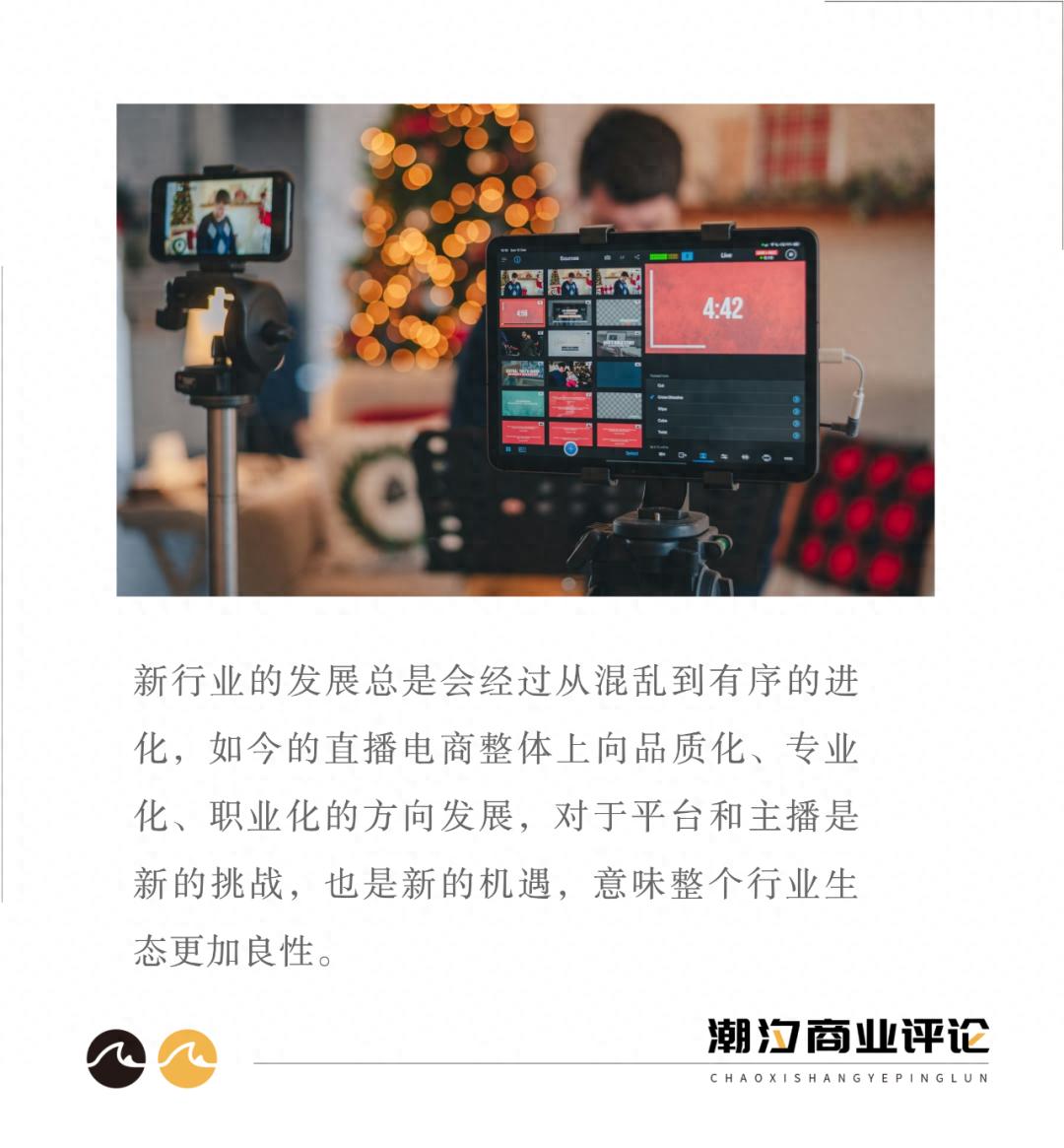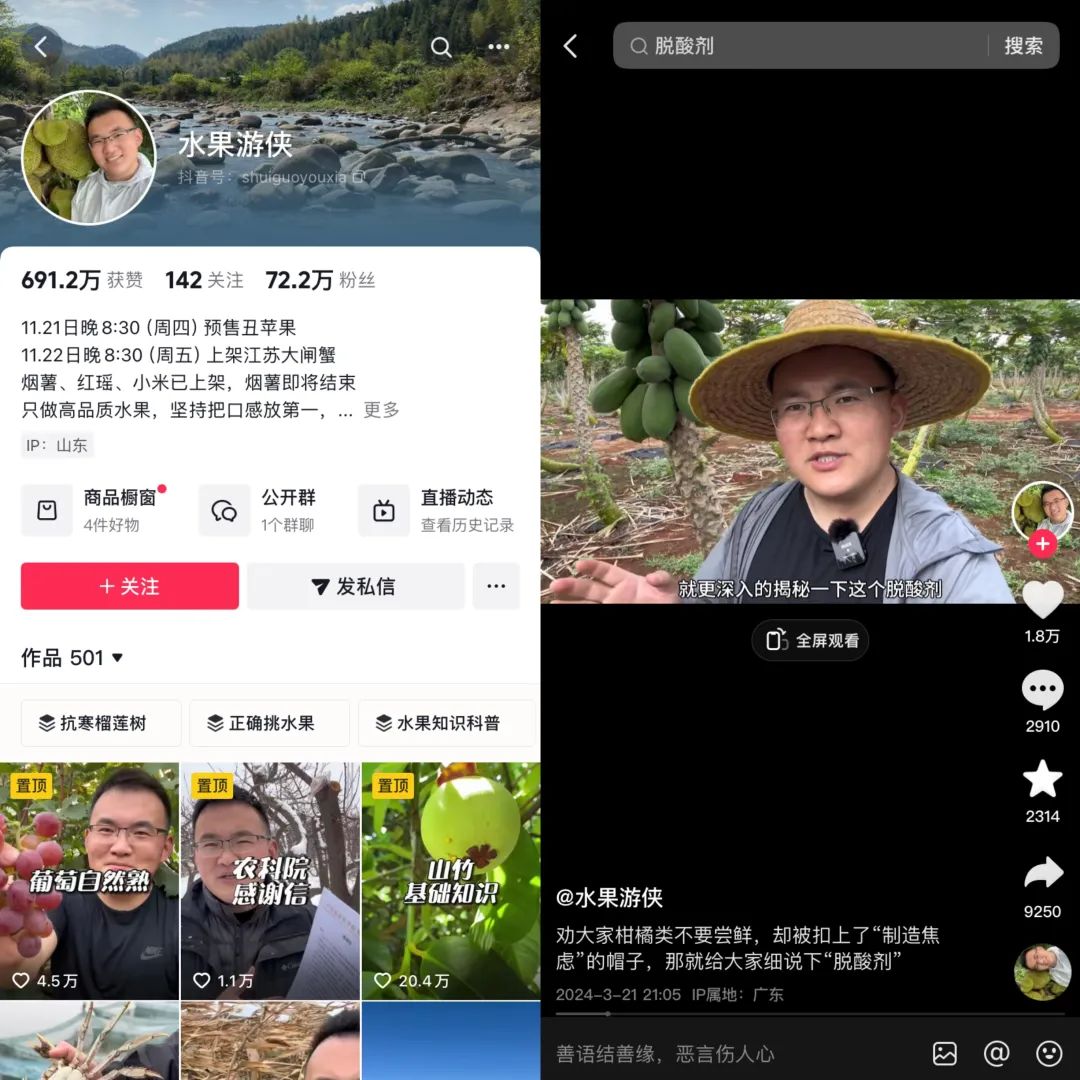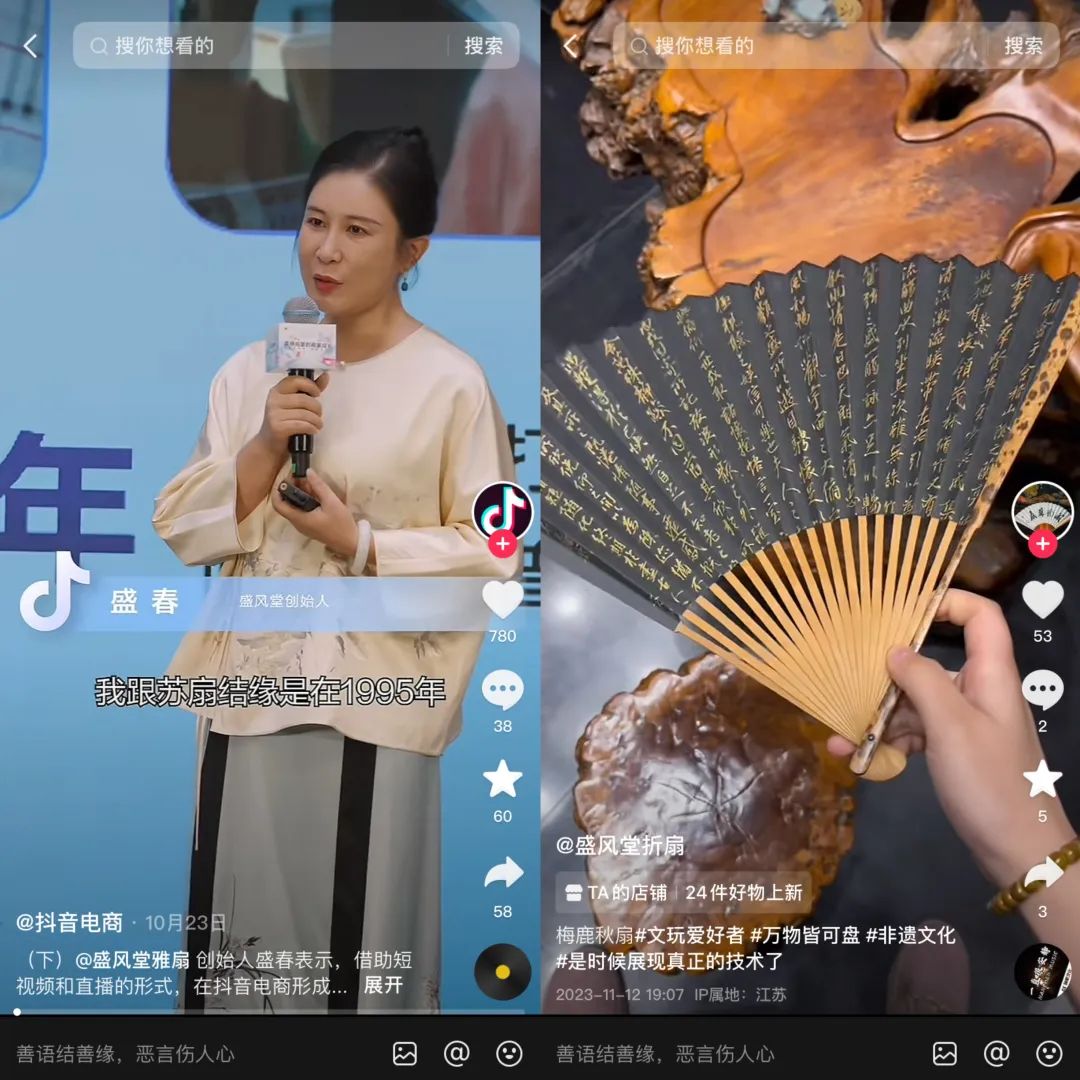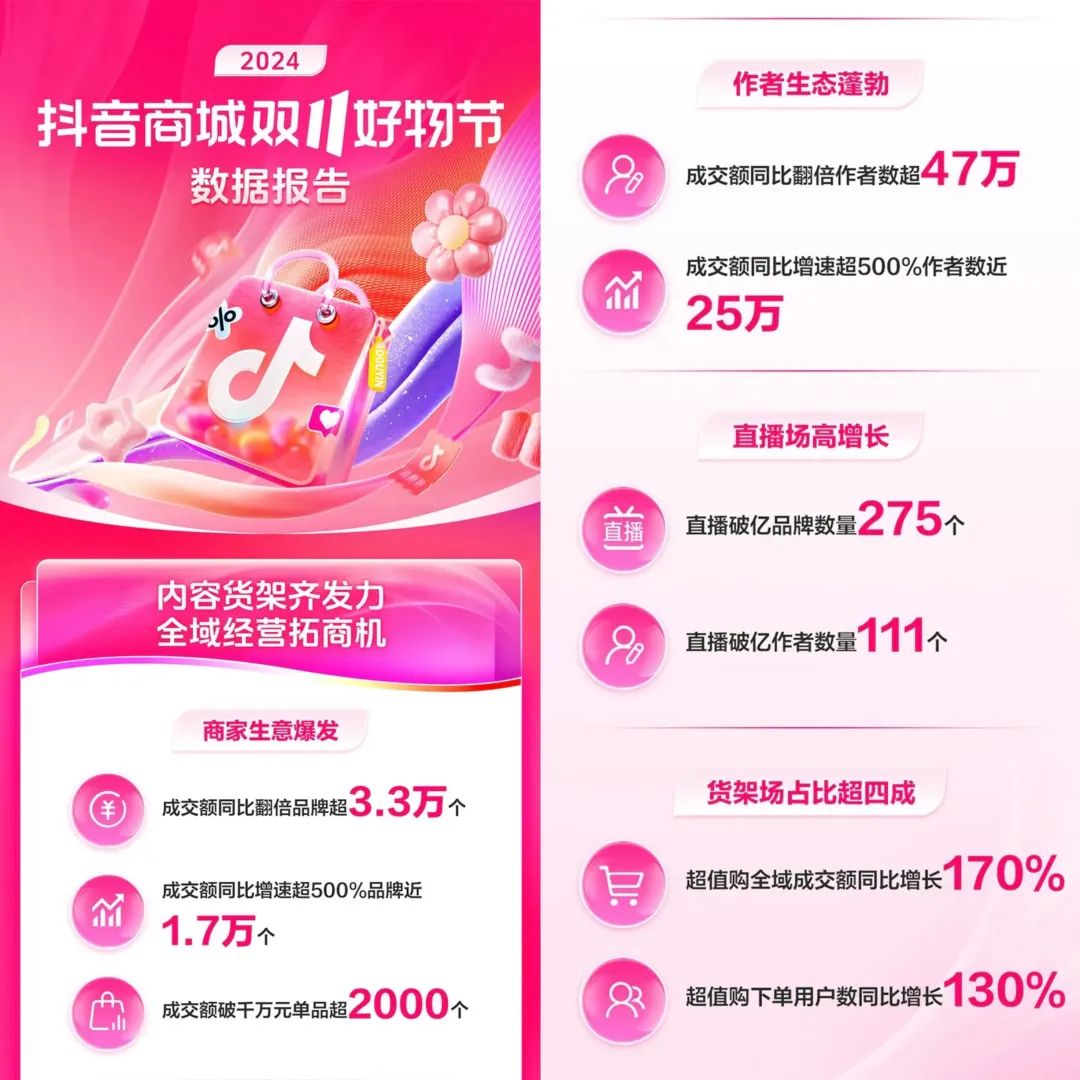Changes and Unchanged Elements in Live Streaming E-commerce in 2024
![]() 11/22 2024
11/22 2024
![]() 568
568

【Tide Business Review/Original】
Deep in the Daliang Mountains, over 2,700 meters above sea level, a man who calls himself the "Fruit Ranger" is rushing through the orchard, aiming to find that sweet, ugly apple and share it with his 720,000 followers on Douyin's live stream during the Singles' Day shopping festival.
The "Ranger" is named Cao Han. Before becoming an agricultural influencer, he worked in the medical device industry in Shanghai for two years before "abandoning medicine for agriculture," returning to his hometown in Shandong, and starting a business centered around agricultural products.
In 2020, Cao Han and his cousin first tried live streaming, promoting jackfruit grown locally by a friend of a friend on Douyin's shopping cart. They sold 1,500 orders that day, making live streaming sales a turning point in his entrepreneurial journey, allowing Cao Han to truly travel and make friends through his live streams.
Live streaming is not just changing the lives of "rangers."
Traditional goods are still worth selling again on live streams.
The afternoon Cao Han first tried live streaming in 2020 was a "singularity" moment in his entrepreneurial career. Before then, he ran offline businesses, but he discovered that Douyin live streams were about more than just buying and selling.
On the one hand, niche fruits have reached thousands of households through his live streams, boosting local fruit farmers' incomes. For example, in Haiyang, Shandong, there is a niche variety of netted melon that is delicious but little-known. Cao Han promoted it on his live stream, and in a few years, local netted melon production and farmers' incomes have increased significantly.
On the other hand, a vertical industry chain implies knowledge barriers behind it. For example, Cao Han found during his live streams that users know little about agricultural products, so he and his team not only sell products but also educate the public on how to choose delicious mangoes, how "de-acidifiers" are used in the fruit industry, etc. So users can not only buy delicious fruits on his live stream but also learn professional agricultural knowledge.

It's not just specialty fruits from across the country that are "selling like hotcakes" on live streams; there are also Su fans (traditional Chinese fans).
In 1995, Sheng Chun, born in Suzhou, became a disciple of Tao Lin at the age of 24, learning to make various types of folding fans and fan surfaces. Su fans are exquisite but complex to make, incorporating various artistic techniques such as carving, dyeing, weaving, mounting, pyrography, lacquer art, calligraphy and painting, embroidery, silk tapestry, lace making, hot stamping, and raffia flower arranging.
After years of learning, Sheng Chun has not only become a master of fan-making craftsmanship in China but also owns a nearly 3,000-square-meter production and processing base. However, during the pandemic, the factory faced unprecedented challenges, with "no merchants wanting fans and the factory facing shutdown." So Sheng Chun and his wife began researching how to sell fans on Douyin.

From the first live stream in 2021 to the present, in three years, the company has not only created the Shengfengtang Elegant Fans brand but also successfully replicated 22 live stream studios with 40 anchors, and the brand's online sales now account for 90% of total sales.
What surprises Sheng Chun and his wife the most is that their fans have received unanimous praise from young people on Douyin, expanding their consumer base. Additionally, through live streams and short video content, Su fans are no longer just a "tool-like" decoration for consumers but are understood through the anchors' explanations of their long history.
Of course, Yunnan's flowers and women's clothing from Shenzhen have also experienced a "second spring" on live streams. Countless traditional industries are connecting with new users on live streams, reaching a broader audience.
In its ninth year, live streaming e-commerce remains the most dynamic business model in the e-commerce sector.
2016 is considered the first year of live streaming e-commerce, when major e-commerce platforms began deploying live streaming e-commerce, which has since become another growth curve in the e-commerce industry. This year's Singles' Day live streaming e-commerce also performed well.
On November 14, Douyin E-commerce released a data report on the 2024 "Douyin Mall Double 11 Goodies Festival" (hereinafter referred to as the "report"), showing that during the promotional period, a total of 275 brands achieved sales of over 100 million yuan through live streaming; 111 e-commerce author live streams exceeded 100 million yuan in sales, over 470,000 e-commerce authors doubled their sales year-on-year, and nearly 250,000 e-commerce authors achieved sales growth of over 500%.

From the user's perspective, shopping on live streams has evolved from a novelty to a routine. Relevant surveys have found that during this year's Singles' Day, over 70% of respondents had shopped on live streams.
From the platform's perspective, whether traditional or content-based e-commerce platforms, live streaming sales are a critical focus and main battleground. According to professional data from Tianyancha, as of now, there are over 2.121 million existing enterprises related to live streaming, with 699,000 enterprises registered from January to October 2024 alone. The live streaming ecosystem is gradually stabilizing from a supply perspective.
Matching supply and demand may be the natural duty of platforms, but different "venues" have varying matching methods and efficiencies. Live streaming sales amplify industry advantages such as fruits through anchors' personalized presentations and live stream content, helping them find target audiences and improving the efficiency of supply-demand matching. The dual value of traffic and transactions is well balanced, gradually becoming the mainstay of business in the new e-commerce era.
The way of live streaming remains unchanged in quality.
In the nine years of live streaming sales, changes have been quietly occurring. Over time, there has been a new atmosphere, gradually shifting from early extensive practices to refined cultivation. There are two main directions for this refinement.
The first is content specialization and professionalization. Nowadays, there are more and more vertical-niche anchors like Sheng Chun of Shengfengtang Elegant Fans. They not only sell products on live streams but also use this unique medium to introduce vertical knowledge about the industry, not only allowing consumers to understand the history behind a fan or the origin of a mango but also deepening their affection and trust for the anchor and live stream, converting them into fans and increasing transaction volumes.
This professionalism is not only reflected in vertical knowledge but also in the continuously improving quality of anchors. After experiencing early live streaming chaos, anchors and live streams now focus on internal cultivation, enhancing their professional ethics, making the entire live streaming e-commerce industry clearer and more transparent.

The second is a focus on "good quality at a reasonable price." The core interaction for users on live streams is still "purchasing products." Only genuine and high-quality products can attract users, build connections, and increase repeat purchases. For example, the Ranger sells the delicious Guiwei lychees he carefully sourced under the scorching sun, while Shenzhen stall CHU Chuniu, a Douyin clothing brand starting from a white label, has also brought clothing sold on Douyin live streams to the stage of Shenzhen Fashion Week.
The development of a new industry always evolves from chaos to order. Today's live streaming e-commerce is generally moving towards quality, specialization, and professionalism, posing new challenges and opportunities for platforms and anchors, indicating a healthier industry ecosystem.
There are many ranger stories unfolding in live streams, and many Su fans are sold. Users also learn about the history behind products and more professional knowledge through this small window. Nine years ago, live streaming e-commerce was just an innovative attempt by e-commerce platforms; over the past nine years, the industry has experienced ups and downs; today, live streaming e-commerce has become crucial for major platforms, e-commerce entrepreneurs, and various industries of all sizes. And now, this industry indeed has a new story to tell. Live streaming e-commerce is destined to be a highlight in e-commerce history.






